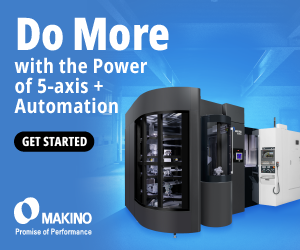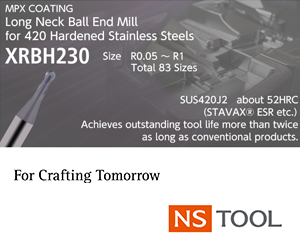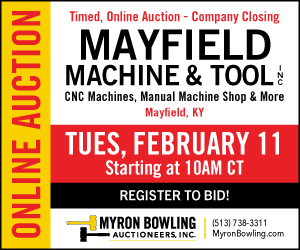All shop owners have stories about how they came to be running their businesses. For Steve McLean, president of contract manufacturer WP Manufacturing, Longmont, Colo., that story starts with the fact that the business was just 5 minutes from his house.
In 2008, the industry he had worked in for many years, aerospace, was in a slump and McLean was not sure if his future career path in aerospace was really what he desired—he wanted to operate more independently and thought he could do that in a small company. At the same time, the owners of nearby WP Manufacturing were struggling with debt and wanted to sell. Feeling up to the challenge and enjoying the idea of a short commute, McLean bought WP in 2008.

Courtesy of All images: WP Manufacturing
WP Manufacturing President Steve McLean.
Founded in 1970, WP manufactures parts from plastic and metal for the medical, defense and aerospace industries, including electronic housings, and assembles electronic measurement devices, such as electrical inductor cores and bobbins for measurement and flow analysis.
McLean said running WP has been incredibly challenging, but one of the best decisions he’s ever made—having been successful enough to endure the Great Recession that immediately followed his purchase.
The company is thriving, as evidenced by its recent expansion into a 45,500-sq.-ft. building McLean purchased for $645,000 in November 2011, in which he’s also invested more than $700,000 in improvements.
Yesenia Salcedo, senior editor of CTE, checked in with McLean to see how he’s developing the new space.
CTE: You moved WP to a building that more than doubles your previous space—business must be good.
McLean: Absolutely. We’re at about $3 million per year in revenue, up from less than $2 million during the recession. I expect sales to top $5 million in the next 2 years, with profit margins growing as well. About 75 percent of our revenue comes from plastic-injection-molding services and 25 percent from toolmaking and other work, such as screen printing and pad printing—the process of putting ink permanently on contoured metal or plastic part surfaces, such as the letters on your keyboard.
CTE: Did your company’s growth lead to the expansion?
McLean: We outgrew our old facility well over a year ago. We knew that to sustain the growth we’d need more equipment and more qualified people. The old building had no room for either.
CTE: What do you plan to achieve through this expansion?
McLean: In the near term, it will allow a more efficient flow of product and provide greatly needed floor space. We have nine plastic-injection-molding machines, ranging from 24 to 330 tons, and six CNC vertical machining centers and lathes. Now that we have the space, we are looking for another VMC and a clean room molding machine. For long-term growth, one of the key elements of the new building is a 1,500-sq.-ft. ISO Class-8/7 clean room. Even though we already make medical devices, having a clean room will lead to even more medical business.
CTE: How will the expansion affect staffing?
McLean: I have about 30 current employees and plan to add 12 to 15 more in the next couple of years. If medical molding continues to grow, it could be more than that.
CTE: What challenges have you faced with this expansion?
McLean: The toughest ones were construction and renovation cost overruns. Because the building was constructed in 1965, there were quite a few things we had to do to bring it up to snuff. The building had water damage, air lines had exploded under pressure, and it was a lot harder than we anticipated to grind and refinish the 45,000 sq. ft. of concrete flooring. Not to mention the need to completely redo the exterior stucco due to years of neglect and moisture damage. We handled these challenges as they came. It was mostly an exercise of reallocating funds and having to give up some of the “nice to haves” that we were hoping could be part of the renovation. Things like a full-function overhead crane and an in-floor drainage system will have to wait.

WP Manufacturing’s 45,500-sq.-ft. home is more than twice the size of its old plant.
CTE: What’s your shop’s approach to quality assurance?
McLean: We ask two questions when taking on a new client: “Can we do it according to customer specifications” and “Can we do it on time?” If the answer to both is “yes,” our ISO 9001:2008 certification drives our QA standards and the processes already in place are followed. Because we don’t overcommit, our on-time-delivery rate stays well above industry averages, which rarely break 90 percent. Usually averages are in the high 80s. During the last 6 months, we had a 98 percent on-time-delivery rate, and we try to never be lower than 97 percent.
CTE: Are there other certifications?
McLean: We have ITAR-compliant procedures (International Traffic in Arms Regulations) in place, and have upgraded our processes to aerospace standards (AS9100). As soon as a customer needs it, we are ready to be audited for AS9100. Medical certifications are our next goal. Clean room injection molding is becoming increasingly necessary in the medical and pharmaceutical industries. In these fields, cleanliness is not only essential but regulated and manufacturers must adhere to strict medical manufacturing protocols, which include ISO 13485:2003.
CTE: What sets WP apart from other similar manufacturers?
McLean: Responsiveness and flexibility—end-to-end flexible, ultraresponsive, single point-of-contact service and 48-hour quote turnaround. We also have collaborative, real-time project management and the ability to work in plastic and metal under one roof.

WP Manufacturing makes metal and plastic parts for a variety of industries under one roof.
CTE: What are your thoughts about reshoring?
McLean: Our motto, “We work for America,” pretty much says it all. We are a truly American company, one that wants to see the U.S. strong again. The U.S. is selling itself short by buying so much from China. There are many capable foreign contract manufacturers that do good work, but, as Americans, we’d like to keep as much manufacturing as possible here in the U.S. Reshoring needs to be the new trend. Doing enough of it will strengthen our economy and give America back much of what it has lost in GDP. Quality, on-time delivery, fast turnaround, real-time support and flexibility are sometimes difficult to get overseas. At WP, we work hard to make the U.S. choice the best value, even if China can usually beat us on initial price.
CTE: What did you do before you bought WP?
McLean: Starting in 1992, I was part of the aerospace industry in design project engineering and engineering management roles. Before buying WP, I was working as an aerospace engineer for Ball Aerospace, Boulder, Colo., a manufacturer of spacecraft, components and instruments for national defense, civil space and commercial space applications.
CTE: What do you enjoy most about owning WP?
McLean: Knowing I’m supporting our country’s efforts to recover from the recession. We need to raise the awareness of the importance of supporting and applauding American small businesses. The U.S. economy is suffering from a famine of this type of support, not only from consumers, but from our leaders and government. If the U.S. is going to rise up stronger, it will be because publications like yours are getting the word out and creating a greater awareness of the support that we need, not only to stay in business, but to thrive in this business—and if American small businesses thrive, so will America. CTE
Related Glossary Terms
- centers
centers
Cone-shaped pins that support a workpiece by one or two ends during machining. The centers fit into holes drilled in the workpiece ends. Centers that turn with the workpiece are called “live” centers; those that do not are called “dead” centers.
- computer numerical control ( CNC)
computer numerical control ( CNC)
Microprocessor-based controller dedicated to a machine tool that permits the creation or modification of parts. Programmed numerical control activates the machine’s servos and spindle drives and controls the various machining operations. See DNC, direct numerical control; NC, numerical control.








